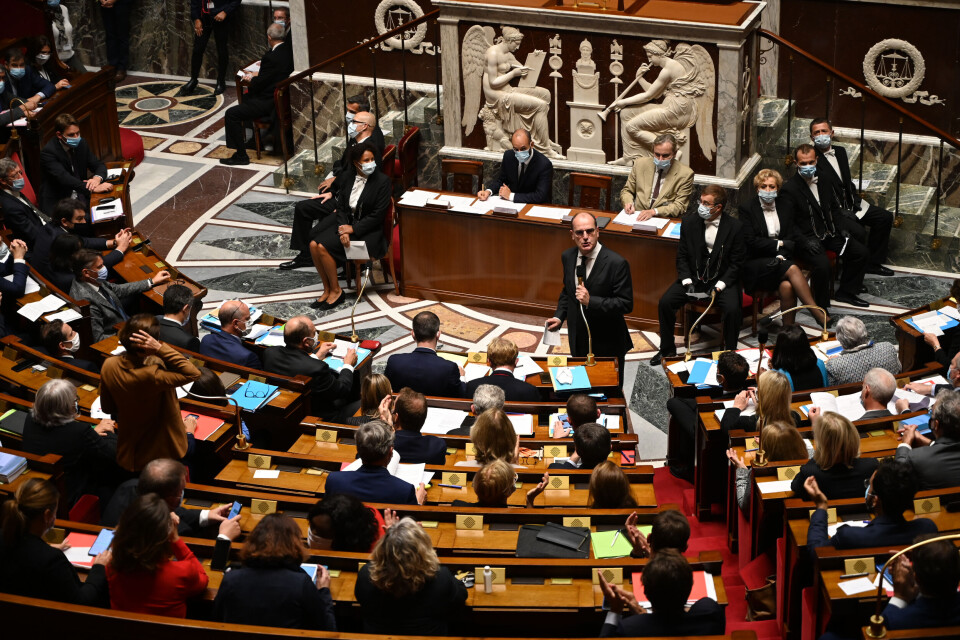-
My tips for bird nesting season in south-west France
Some species begin building nests as early as February, including collared doves, mistle thrushes and song thrushes
-
What I miss about France after moving back to UK
Columnist Gillian Harvey, who returned to the UK in 2024, explains what she misses – and what she has gained in the process
-
Auvergne region is neglected by government
Government agencies and the SNCF shun the area 'time and time again', says reader
French politics: Why the hung parliament could be a big opportunity
Politicians are going to have to find a way forward and, in so doing, they might be able to reinvigorate democracy, argues writer Nick Inman

France’s constitution is generous in the powers it gives the president, but he cannot do exactly as he wants.
As in most democracies, he has to work with a legislature, the Assemblée Nationale, that makes the laws.
The founders of the Fifth Republic assumed the party of the president would also hold a majority in the assemblée so that the institutions of the state would work together to implement the policies the people want.
It has occasionally happened, however, that the presidency and parliamentary majority have belonged to opposing parties, forcing them to ‘cohabit’ and get legislation through by horse trading.
For more than 50 years, France had two main parties – one right, one left – which took turns holding power and which worked together, after a fashion, when they had to.
Then along came an outsider candidate, Emmanuel Macron. In 2017, he ran a stunning, mould-breaking campaign to win both the presidential and legislative elections while diminishing the status of the two established parties.
Macron ruled as president and his assemblée did his bidding.
Last year, Macron tried – and failed – to repeat the same trick
His opponents might not have liked it, but at least things were clear. Last year, Macron tried – and failed – to repeat the same trick.
He won the presidency a second time but his party did not win the vote for the Assemblée Nationale. No one did. Instead of a two-party system, there is now a fragmentation.
Herein lies a problem for French democracy. Whereas once there was always a clear majority either in favour of or in opposition to the president, now there are loose coalitions.
A majority of députés (MPs) can be temporarily united in their dislike of one of Macron’s plans for the country but no one can agree on a positive, long-term alternative to them.
Macron and his prime minister, Elisabeth Borne, must feel they are in a corner.
If they want to get any controversial legislation through, they will either have to compromise or invoke Article 49.3 of the constitution, which gives them power to override a hung parliament.
Such an autocratic act will not do Macron’s reputation any good
Such an autocratic act will not do Macron’s reputation any good.
The alternative is possibly worse. The president could dissolve an intransigent parliament and declare fresh elections – but then the rightwing Rassemblement National might just win the absolute majority it so badly desires and that would be even more catastrophic for Macron than the current mess.
There might, however, be a silver lining.
The French are finally asking: what is the purpose of parliament if it is no longer, as it has too often been, the dutiful servant of the reigning president?
This is a question that applies to all other democracies where the executive branch of government has got too big for its boots, including the UK and the European Union.
If people go to the trouble of electing members of parliament, are they not entitled to expect them to do more than murmur, grumble and nod through the policies of a supremo?
The French political class is going to have to find a path forward and, in so doing, it might be able to lead the way in reinvigorating democracy.
Let us hope that in these days of personality politics, members of parliament everywhere perform their role of scrutinising the work of the executive with wisdom.
National legislative assemblies can be, and should be, places for vigorous debate in which all shades of opinion are aired and prime ministers and presidents are forced to listen.
Dissent and division are not forces that necessarily weaken democracy; on the contrary, when applied with a constructive attitude, they can make it stronger.
Related articles
France’s Macron ‘could stand for third consecutive term’ as president
‘Macron an easy scapegoat for France’s political and social unrest’
























